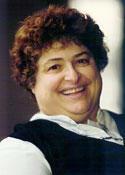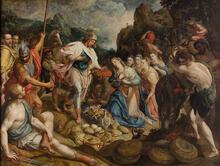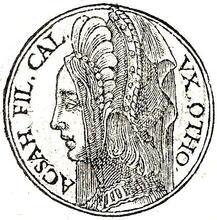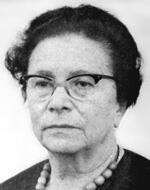Wife of Job: Bible
"Job on the Ash Heap," by José de Ribera, c.1630. Via Wikimedia Commons.
One rarely hears about the contribution of Job’s nameless wife to the unusual questioning of the ways of God in the Book of Job. She is also a victim of divine affliction, and it is she who opens the possibility of speaking against God. Job’s wife characterizes her husband’s unconditional devotion to God as an act of cowardice. While Job initially responds harshly to his wife, he ends up coming close to heeding her advice. Much like Eve, Job’s wife prompts her husband to doubt God’s use of divine powers and, in doing so, she deepens his knowledge and opens his eyes. And yet she is conspicuously absent from Job’s happy ending. The challenge of an outsider, of a woman, is perhaps far more threatening than a critique voiced from within.
Article
In the well-known biblical story dealing with the problem of undeserved suffering, Job loses his children, his possessions, and his health. Job’s nameless wife turns up after the final blow, after Job has been struck with boils. Seeing her husband sitting in the dust, scraping his sores silently, she bursts out, “Do you still persist in your integrity? Curse God, and die” (2:9). She cannot bear her husband’s blind acceptance of the tragedies that befall them. Indeed, the attention to Job’s suffering usually ignores the fact that she too, after all, is a victim of these divine tests in addition to being pained by exposure to his afflictions (19:17). To cling to a model of perfect devotion to a supposedly perfect God when reality is so far from perfection seems to Job’s wife to be not exemplary strength, but an act of cowardice. Such “integrity,” she seems to be saying, lacks a deeper value. What Job must do is to challenge the God who has afflicted him so, even if the consequence is death.
Much has been written about the unusual challenge the Book of Job offers in its audacious questioning of the ways of God, but one never hears of the contribution of Job’s wife to the antidogmatic bent of the text. Job’s wife prefigures or perhaps even generates the impatience of the dialogues. She opens the possibility of suspending belief, of speaking against God. Job’s initial response to his wife’s provocative suggestion is harsh: “You speak as any foolish woman would speak. Shall we receive the good at the hand of God, and not receive the bad?” (2:10). When the dialogues begin, however, Job comes close to doing what his wife had suggested. He does not curse God directly, but by cursing his birth he implicitly curses the creator who gave him life. Much like Eve, Job’s wife spurs her husband to doubt God’s use of divine powers. In doing so she does him much good, for this turns out to be the royal road to deepening one’s knowledge, to opening one’s eyes.
Job’s wife disappears after her bold statement. She is mentioned in passing only once more in the course of Job’s debate with his friends. In protesting his innocence of various wrongdoings, Job insists that if his “heart was enticed by [the wife of his neighbor]… then let my wife grind for another,/and let other men kneel over her” (31:9–10). He regards his wife’s fate as a mere extension of his own lot.
Job’s wife is conspicuously absent from the happy ending in which Job’s world is restored. Job’s dead children spring back to life, as it were, because he ends up having, as in the beginning, seven sons and three daughters. Yet his wife, who actually escaped death, is excluded from this scene of familial bliss. The challenge of the outsider—and woman is something of an outsider in divine-human matters—seems far more threatening than a critique voiced from within.
Greenberg, Moshe. “Job.” In The Literary Guide to the Bible, edited by Robert Alter and Frank Kermode, 283–304. Cambridge, MA: The Belknap Press of Harvard University Press, 1987.
Kahn, Jack. Job’s Illness: Loss, Grief, and Integration: A Psychological Interpretation. Oxford: Pergamon Press, 1975.
Meyers, Carol, General Editor. Women in Scripture: A Dictionary of Named and Unnamed Women in the Hebrew Bible, the Apocryphal/Deuterocanonical Books, and the New Testament. New York: Houghton Mifflin, 2000.
Pardes, Ilana. Countertraditions in the Bible: A Feminist Approach. Cambridge, MA: Harvard University Press, 1992.
Seow, C.L. “Job’s Wife.” In Engaging the Bible in a Gendered World, edited by Linda Day and Carolyn Pressler, 141-152. Louisville, KY: Westminster John Knox Press, 2006.
Shepard, David. “’Strike His Bone and His Flesh’: Reading Job from the Beginning.” Journal for the Study of the Old Testament 22, no. 1 (2008): 81-97.










